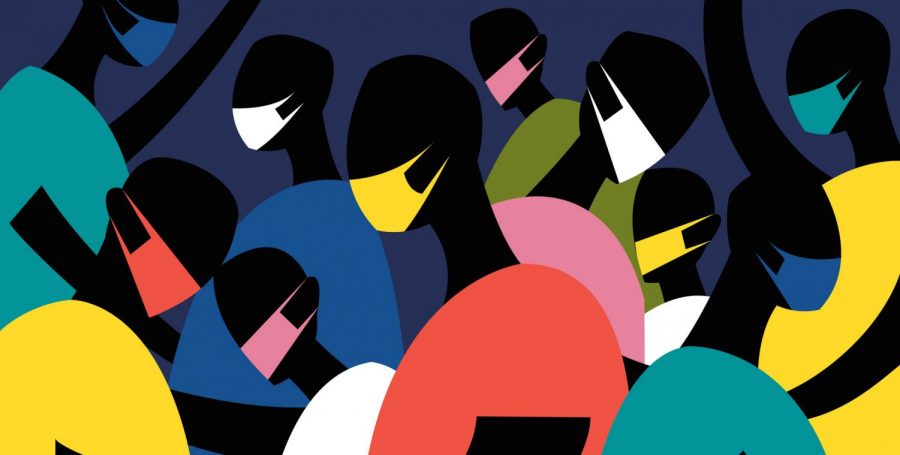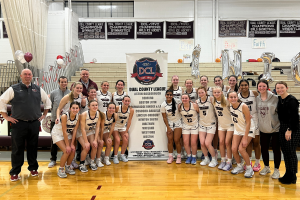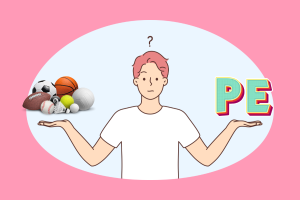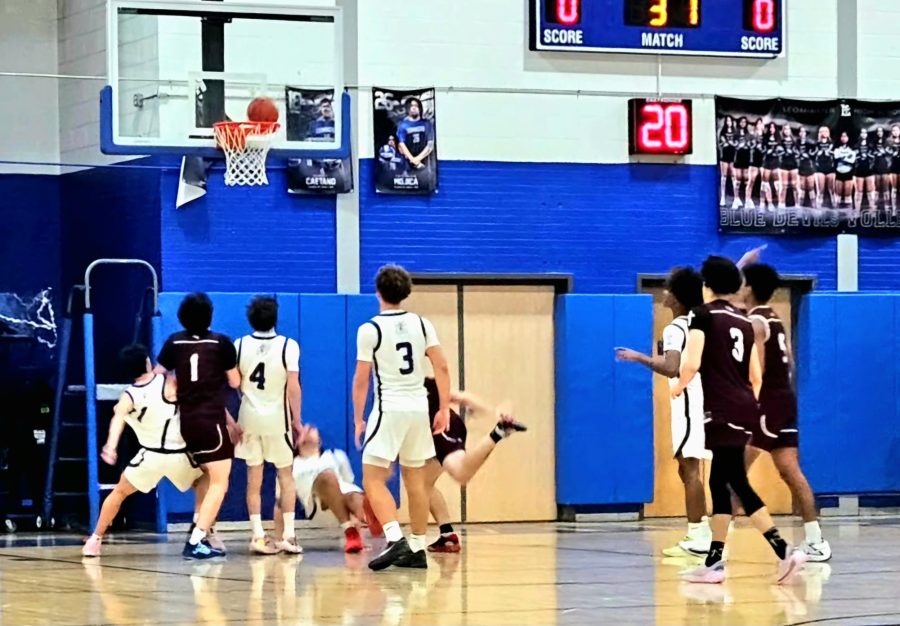Wearing a mask is still important, more so than “normalcy”
Artistic depiction of a crowd wearing multicolored masks.
September 16, 2021
When thinking of the past eighteen months, many images may come to mind — the endless weeks of quarantine, never-ending online calls and assignments, and perhaps even the chaos that was the 2020 election. But what about wearing a mask?
Although the pandemic has lasted for about a year and a half, in many ways it feels like it has been much longer. Masks have become symbolic of the pandemic and by extension 2020 as a whole. The previous year was downright traumatic, a time of high anxiety and unease, and people are longing for a return to normalcy.
With the COVID-19 vaccine readily available, many see it as a sign that the pandemic is over, that they can rip off their masks and go back to their life as it used to be. The reality is that the pandemic is still far from over. With the rise of the Delta variant, wearing a mask applies to everyone now more than ever, whether or not you are vaccinated.
I recognize that this is a hard truth to accept. No one wants to keep living in a world in which they are constantly worried about a virus, nevertheless one that looks so unfamiliar compared to two years ago. However, this is not an excuse to start slacking.
Delta is no joke. Data shows that even if fully vaccinated, this variant is more infectious and can lead to increased chances of transmissibility. This certainly is not to say that the vaccines are useless. For instance, studies show that the Pfizer vaccine has a 95 percent effective rate at preventing infection, but there is still the possibility of that slim, five percent chance.
Additionally, you never know what health conditions a student or faculty member may be struggling with, including the people in their own families in the building. Cancer survivors, the elderly, and those with previous respiratory conditions would all be at risk if they were to contract COVID-19. Even children under 12 years of age are still not viable to be vaccinated, and therefore vulnerable.
But do you know what method is always guaranteed to reduce the chances of transmission? Wearing a mask. Even the simplest piece of cloth can significantly reduce the number of infections and by extent the number of potential deaths.
But what’s the harm if you put down your own mask? After all, you’re vaccinated anyway, and the chance of transmission is so low that you can’t possibly be sick. Mask safety doesn’t necessarily apply to you, right?
Unfortunately, I feel like most people have fallen into this train of thought. It does make some sense considering the circumstances, and it’s natural to feel frustrated. After a horrendous year, many of us feel exhausted and battered down.
However, we cannot allow this frustration to lead to carelessness. This year especially, I have seen students in the halls and classrooms with their masks continually below their noses and mouths. I’ve noticed that the teachers tend not to say anything, opting to look the other way. On the rare one does tell a student to put their mask back on, it will immediately be pulled down as soon as the teacher is gone.
In my opinion, I believe this represents a much larger issue, namely a lack of empathy. It is so easy to focus on ourselves and to think about how annoying it is to wear a mask for our own sake. I feel we have forgotten the reason behind why we began wearing masks in the first place, and how protecting the members of our community ultimately helps ourselves too.
To be honest, I find it baffling that I am even writing this opinion; I feel like it should just be common sense at this point. In the midst of a pandemic, one should properly wear their mask in order to protect themselves and others. But I guess common sense just isn’t that common.
COVID-19 is still real, prevalent, and a danger to vulnerable people attending our school, and I fear that many have forgotten that.









Poornima • Sep 16, 2021 at 8:43 pm
Well written!